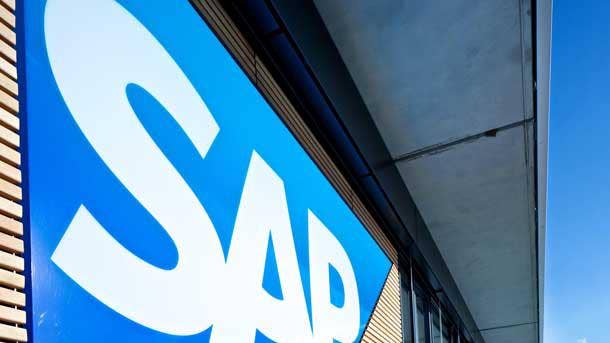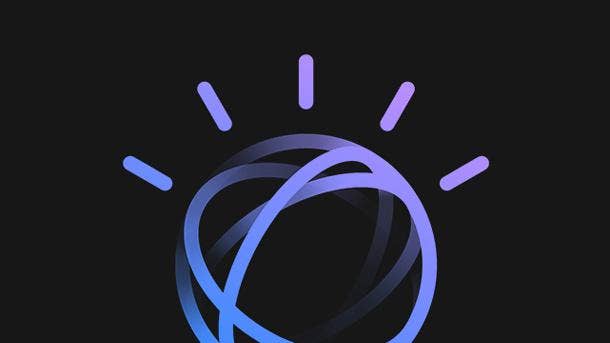5 Big Announcements From IBM Think Boston
IBM announces an updated quantum roadmap, a major SAP migration and partnerships aimed at shrinking the skills gap in cybersecurity.

An updated quantum roadmap, a major SAP migration and partnerships aimed at shrinking the skills gap in cybersecurity were among the biggest announcements during this year’s IBM Think conference.
The Armonk, N.Y.-based tech giant held its annual Think conference online and with a small physical presence in Boston as the world continues to deal with the COVID-19 pandemic.
[RELATED: IBM CEO Arvind Krishna: We’re A ‘Catalyst Of Progress’ Thanks To AI, Hybrid Cloud, Red Hat, Partners]
IBM CEO Arvind Krishna has spoken at length about his company’s investments in the quantum computing race. Under his watch, in 2021 IBM deployed the Eagle 127-Qubit system, the first quantum chip that breaks the 100-qubit barrier.
In Krishna’s annual letter to shareholders published earlier this year, he said that IBM delivered operational quantum computers to Japan and Germany and is on track for a 1,000-qubit processor by the end of 2023. The company also has long-term partnerships with universities, governments and hospitals to develop quantum-based applications.
In the summer, Krishna said that quantum computing will “unlock hundreds of billions of dollars of value for our clients by the end of the decade,” he said.
“Quantum is an area of incredible promise,” he said.
Meanwhile, IBM and Germany-based SAP have been deepening their partnership, with IBM announcing its new premium supplier designation for Rise with SAP in February. IBM also unveiled its “Breakthrough with IBM for Rise with SAP” portfolio of consulting services meant to help accelerate customers’ move to SAP S/4Hana Cloud.
Here’s what you need to know.

New Quantum Milestones
IBM provided an update on its roadmap to quantum systems with larger qubit counts, including a 4,000-qubit system by 2025.
IBM expects to unveil its 433-qubit processor Osprey later this year and the 1,000-qubit Condor processor in 2023. Under CEO Arvind Krishna’s (pictured) watch, IBM deployed the Eagle 127-Qubit system, the first quantum chip that breaks the 100-qubit barrier.
In the fall, IBM launched its Power E1080 server, the first in a line of servers built around its 7nm IBM Power10 processor and designed for hybrid cloud environments. The servers support quantum-safe cryptography, according to the company.
IBM rival Rigetti Computing, based in Berkeley, Calif., previously announced plans to scale its quantum computers to 4,000 qubits in 2026.

IBM Plans SAP Migration
IBM plans to move more than 375 terabytes of data from on-premises and multiple cloud environments to SAP’s S/4HANA enterprise resource planning (ERP) system. The company is using Rise with SAP on IBM Power on Red Hat Enterprise Linux on IBM Cloud to accelerate the migration.
IBM Consulting leads the transformation project, which will consolidate 500 servers and move more than 300 SAP instances. A pilot is in production in IBM’s $13 billion software business unit.
In April, IBM revealed its revenue from strategic partnerships by “double digits,” with Salesforce, SAP, Amazon Web Services and Microsoft Azure leading the growth. The tech giant’s distributed infrastructure business grew 8 percent year over year fueled by client demand for S/4HANA and data-intensive workloads on IBM Power10 high-end systems.

New Partnerships Address Skills Shortage
IBM announced new and expanded partnerships with six historically black colleges and universities (HBCUs), the U.S Department of Veterans Affairs (VA) and Specialisterne Foundation to address the shortage in cybersecurity skills.
IBM will build six cybersecurity leadership centers at HBCUs North Carolina Agricultural & Technical State University, Southern University System, Clark Atlanta University, Xavier University of Louisiana, Morgan State University and South Carolina State University, with plans for more than 14 more centers in the future.
The universities will receive online learning curricula, cloud access and an immersive learning experience aimed at developing cybersecurity skills.
IBM’s partnership with the VA and Specialisterne will bring IBM SkillsBuild to transitioning service members who seek job training and credentials, customized learning paths and other accelerated, non-traditional job training for high-demand technology careers.
The tech giant also plans to introduce job training to neurodivergent community members in 13 countries including the U.S., U.K., Australia, Mexico, Brazil and Canada. Examples of neurodiversity include attention deficit hyperactivity disorder (ADHD) and autism.
IBM is far from alone in trying to address the shortage of skilled labor in the technology industry, with channel partners even investing in ways to improve the number of qualified job candidates.

IBM Research Shows Growing AI Adoption…
Recent IBM studies show the growth in business adoption of artificial intelligence (AI) and sustainability, according to the tech giant, with a large number of companies not taking responsibility to make sure their AI tools are trustworthy.
The IBM Global AI Adoption Index 2022 – a survey of 7,502 senior business decision-makers – showed that 35 percent of companies reported using AI in their business, up four points from 2021. About 30 percent say employees save time with new AI and automation software and tools.
Companies were three times as likely to have little-to-no confidence in their data management tools if they had not deployed AI.
On trustworthiness of AI, 74 percent of companies reported they hadn’t taken steps to reduce AI bias. Sixty-eight percent reported they hadn’t taken steps to track performance variations and model drift. And 61 percent reported they hadn’t taken steps to make sure they can explain AI-powered decisions.
IBM’s AI investments include new tools within its Watson-related tools and its Telum processor, the first from the tech giant to contain on-chip acceleration for artificial intelligence inferencing while a transaction is taking place.
Krishna has called hybrid cloud and AI “the two most transformational technologies of our time.”
“We are integrating technology and expertise—from IBM, our partners and even our competitors—to meet the urgent needs of our clients, who see hybrid cloud and AI as crucial sources of competitive advantage. And we are ready to be the catalyst of progress for our clients as they pursue the digital transformation of the world’s mission-critical businesses,” he said in his annual letter to shareholders this year.

…And Sustainability Demand
Sixty-six percent of companies surveyed for the Global AI Adoption Index 2022 said they are applying or plan to apply AI to address sustainability goals.
In the separate IBM Institute for Business Value (IBV) CEO study – which surveyed more than 3,000 CEOs – that 80 percent of CEOs said they believe their company’s sustainability investments will produce improved business results in the next five years
Fifty-on percent of CEOs said sustainability is among their greatest challenges in the near-term, a 59 percent increase since 2021, according to IBM.
IBM’s sustainability investments include the recently announced acquisition of Envizi, a developer of data management and analytics software for evaluating environmental performance.